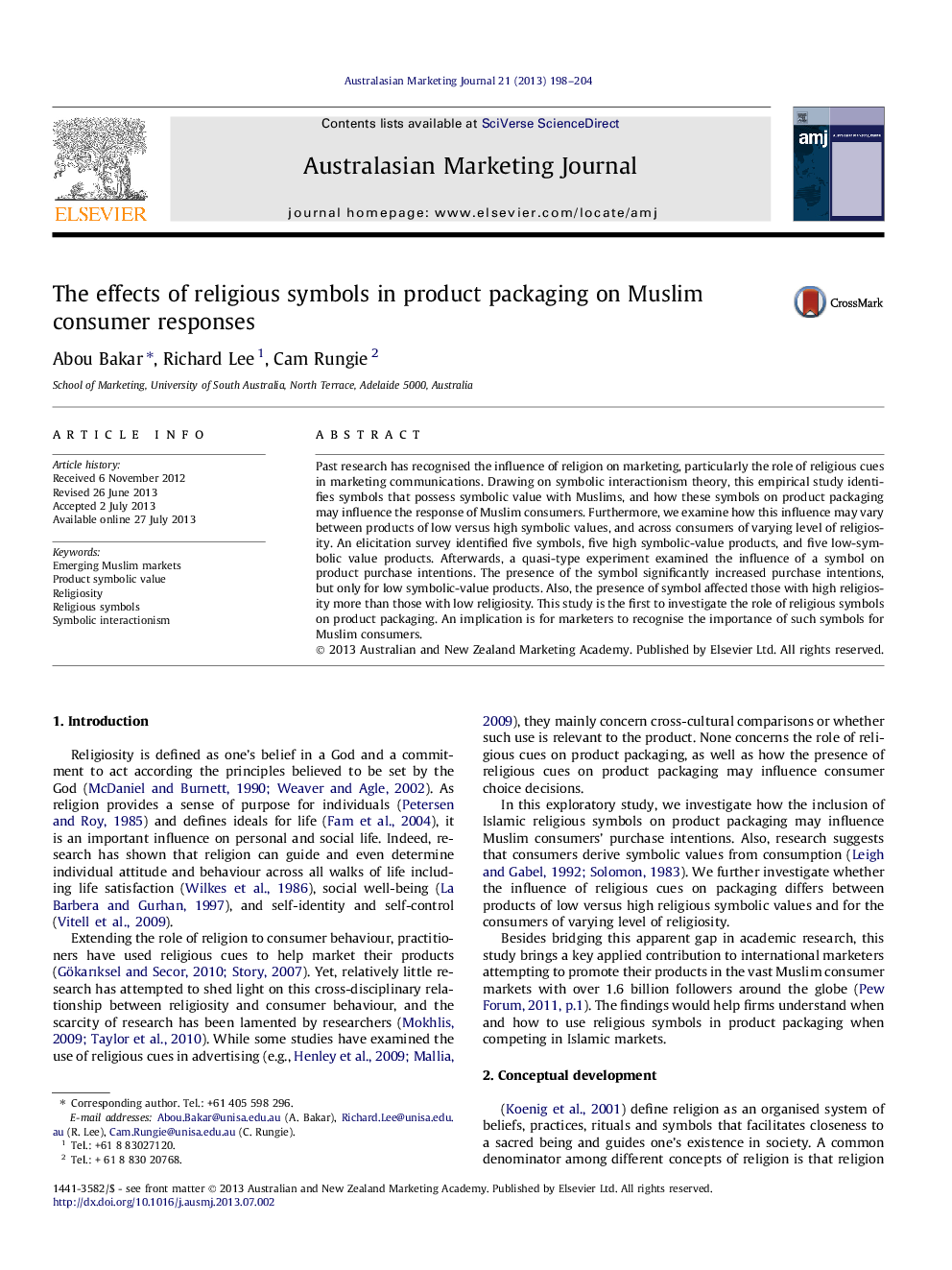| Article ID | Journal | Published Year | Pages | File Type |
|---|---|---|---|---|
| 1027041 | Australasian Marketing Journal (AMJ) | 2013 | 7 Pages |
•Religious symbols on packaging influenced Muslim consumers’ behaviour.•Symbols increased purchase intentions particularly for low symbolic-value products.•Furthermore, the effects strengthened as consumers’ level of religiosity increased.•Managers should recognise the importance of religious symbols on packaging designs.•Underscores the need for marketing communication to adhere to Muslims’ social norms.
Past research has recognised the influence of religion on marketing, particularly the role of religious cues in marketing communications. Drawing on symbolic interactionism theory, this empirical study identifies symbols that possess symbolic value with Muslims, and how these symbols on product packaging may influence the response of Muslim consumers. Furthermore, we examine how this influence may vary between products of low versus high symbolic values, and across consumers of varying level of religiosity. An elicitation survey identified five symbols, five high symbolic-value products, and five low-symbolic value products. Afterwards, a quasi-type experiment examined the influence of a symbol on product purchase intentions. The presence of the symbol significantly increased purchase intentions, but only for low symbolic-value products. Also, the presence of symbol affected those with high religiosity more than those with low religiosity. This study is the first to investigate the role of religious symbols on product packaging. An implication is for marketers to recognise the importance of such symbols for Muslim consumers.
